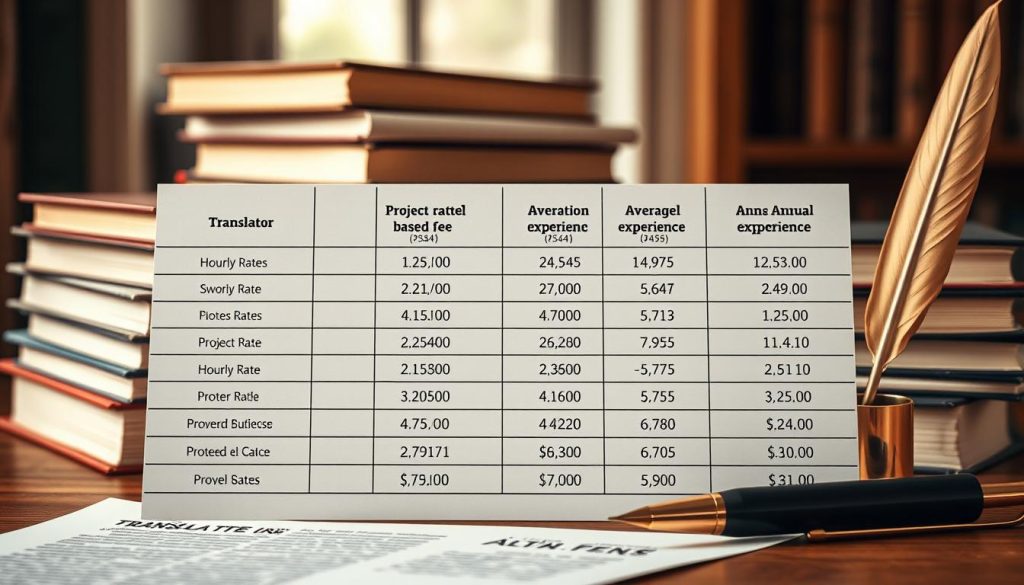For teams in France, finding the right platform can feel overwhelming. This guide makes it simple. It shows how to pick and use global platforms that run 24/7, offer automatic payouts, and support many language pairs.
We explain where each translator community excels and which tools speed up work. You’ll learn how cloud-based workbenches and community resources lift quality and consistency across the world.
Expect clear advice on onboarding, testing, QA, and payment so teams can brief quickly and hit the right tone, terminology, and compliance for a target market.
Whether you need fast turnaround or deep review, this short introduction points you to the right structure, budgets, and next steps. Start here to connect with vetted linguists and get accurate copy from day one.
Table of Contents
Key Takeaways
- Platforms offer 24/7 access, mobile tools, and automatic payouts.
- Cloud workbenches improve speed and consistency.
- Match tone and compliance to your target market early.
- Onboarding, testing, and QA matter for launch readiness.
- Choose fast vs. in-depth review based on risk and budget.
Top Freelance Translation Services in France Today
The leading platforms serving France combine quick signup, in-browser editing, and 24/7 job access. Automated payouts and PayPal options mean payments clear after client approval with minimal admin.
Companies in France can route projects across more than 37 languages. Built-in QA, clear onboarding tests, and community resources help keep standards high while cutting onboarding time.
Translators benefit from flexible work windows, email or RSS alerts, and predictable time-to-completion. That makes planning a week of work simpler for individual contributors and managers alike.
- Transparent dashboards let teams request quotes, approve jobs, and track projects without mixing tools.
- Platforms support a range of workflows—from fast marketing updates to legal or technical jobs—so you match the right translator to each task.
| Feature | What it does | Benefit for France teams | Typical use |
|---|---|---|---|
| 24/7 Access | Jobs available round the clock | Faster turnaround across time zones | Urgent marketing updates |
| Automated Payouts | PayPal and reward tracking | Less finance overhead | Regular project payments |
| Built-in QA | Inline checks and revisor loops | Consistent quality across languages | Regulated content |
| Onboarding Tests | Skill checks and resources | Faster vetting of translators | Specialized subject work |
Service Directory: Gengo, Fairlingo, and World Translation at a Glance
Here’s a compact comparison of three platforms that shape how projects are handled, reviewed, and paid.
Gengo
Always-on access with a modern workbench for desktop and mobile makes Gengo ideal for teams needing quick volume. Thousands of projects appear daily and claim alerts arrive by email or RSS.
New accounts pass a two-part approval test. Approved workflows use style guides and personalized quality scores. Rewards are added automatically after client approval, so payments stay predictable.
Fairlingo
Cloud-based translator‑revisor workflow means every piece gets a second review in-platform. This improves style, terminology, and overall quality over time.
Pricing tiers fit different needs: Basic post‑editing (€0.015/word), Regular (€0.03 translated; €0.01 revised), and Specialized (€0.06 translated; €0.011 revised). PayPal payouts and smart matching by expertise support scaling.
World Translation
Community-minded partner that aligns with professional translators’ values. The group emphasizes fairness, reliability, and long-term collaboration.
This approach suits buyers in France who want consistent tone and trusted relationships across multiple languages and target markets.
Language Coverage and Target Markets
All three platforms cover a wide range of languages and can match expertise to local markets.
Choose Gengo for fast marketing copy, Fairlingo for added reviewer assurance, or World Translation for partner alignment and culture fit.
How These Platforms Work: Translation Process, Quality, and Community
Platforms simplify every step so teams and linguists can focus on good outcomes. Onboarding is short: sign up, pass a two-part test where required, and read the style guide. That gets a new translator into the browser editor with clear expectations.
Simple onboarding
Accounts usually ask for basic info and a skills check. Gengo requires a two-part exam; Fairlingo highlights expertise for smart matching. After approval, you can claim jobs from dashboard alerts or RSS feeds.
Translation process
Work takes place in a cloud workbench. Claim a job, translate in the online editor, submit, and await client approval. Rewards post automatically on approval, so payments need less admin time.
Quality and community
Quality is measured with personalized scores and revisor feedback loops. Fairlingo’s translator–revisor pairing helps lift consistency.
Communities and forums share style tips and common pitfalls. That way translators keep improving and teams get steady quality.
- Fast onboarding keeps time-to-first-job low.
- Cloud editors and mobile tools speed reviews on the go.
- Automatic payouts and PayPal options reduce finance overhead.
For teams in France looking to find vetted linguists, find vetted linguists and practical advice to match workflow and quality needs.
Pricing, Earnings, and Levels for Professional Translators
Clear pay tiers help translators pick the right jobs and plan income. Understanding each platform’s rates lets you match budget to required quality and review depth.

Fairlingo contributor tiers
Fairlingo lists three core options. Basic post‑editing pays €0.015/word. Regular human translation pays €0.03/word with revisions at €0.01/word. Specialized work pays €0.06/word with revisions at €0.011/word.
Gengo and career progression
On Gengo, earnings vary by language pair, demand, and job volume. Passing a Pro qualification unlocks higher‑reward work. Uploading credentials speeds access to better assignments.
- PayPal payouts and automatic rewards reduce admin for professional translators in France.
- Rate bands reflect review depth: post‑editing for speed, Regular for balance, Specialized for high‑stakes content.
- Strong scores and revisor feedback form a clear path to steadier income.
| Platform | Typical Rate | Pay Method | When to choose |
|---|---|---|---|
| Fairlingo (Basic) | €0.015/word | PayPal | Fast post‑editing of machine drafts |
| Fairlingo (Regular) | €0.03/word (+€0.01 rev) | PayPal | Balanced quality and cost |
| Fairlingo (Specialized) | €0.06/word (+€0.011 rev) | PayPal | Technical or legal content |
| Gengo | Varies by pair & demand | Automatic rewards / PayPal | Broad volume; Pro opens higher tiers |
Freelance Translation Services: Choosing the Right Fit for Your Projects
Select platforms by matching project risk, volume, and the level of editorial oversight you need.
Industry expertise and clear style guides help make sure tone and terminology match your target market in France.
Ask about verified qualifications, how the style guide is enforced, and whether a revisor stage exists for extra assurance.
Industry expertise and style guides
Choose vendors that can route work to specialists who know your sector and local language nuances.
Provide glossaries and sample copy so the translator aligns on brand voice and banned phrases before work starts.
Turnaround, volume, and workflow
Balance deadlines and quantity against review depth. For high‑visibility launches, pick a workflow with an integrated revisor.
Check the translation process from intake to delivery, inspect the cloud editor, and confirm file handling and SLAs.
« A good fit feels predictable: clear contacts, consistent outputs, and transparent handoffs. »
- Verify QA signals: quality scores and feedback loops.
- Confirm payment flows and French compliance needs.
- Test sample content to align expectations and approval milestones.
Tips to Work Smarter: From First Translation to Long‑Term Quality
Small habits and smarter tools turn one‑off jobs into reliable, repeatable outputs.
Leverage technology and feedback to refine your translations
Use editor features like hotkeys, side‑by‑side views, and terminology notes to save time. These simple tips speed the process and cut proofreading needs.

Treat feedback as data. Fairlingo’s revisor comments and Gengo’s quality scores show patterns you can fix fast. Over time, those insights improve every translation you do.
Build reliability: consistent quality scores and clear communication
Communicate early about ambiguous passages, preferred style, and glossary entries. This reduces back‑and‑forth and keeps projects on schedule.
Track acceptance rates, revision frequency, and turnaround time. Small metric gains compound into a stronger profile and steadier work.
Payments, compliance, and working hours in France
Make sure payment methods and local compliance are confirmed before you accept a job. Platforms often use PayPal or automatic rewards, so check payout timing.
Make sure your availability overlaps peak French hours and set realistic SLAs clients can rely on. For practical onboarding and long‑term tips, see how to succeed in this market.
Conclusion
Today’s platforms give teams a clear path from brief to published copy, with predictable pay and review options. Choose proven translation services that match your budget and SLA.
Pick a workflow that pairs the right translator and reviewer for the job. That keeps tone consistent across languages and local markets.
Gengo, Fairlingo, and World Translation each bring practical strengths—always‑on access, reviewer loops, or community ties—so you can hit your target quickly and reliably around the world.
Start small, validate quality, and scale. When you’re ready, request a quote and map new projects to the platform that fits best. For help reducing admin and improving work/life balance, see this guide on portage salarial for translators: portage salarial benefits.
FAQ
What platforms are best for professional translators working with French and international clients?
Gengo, Fairlingo, and World Translation each serve different needs. Gengo offers a global, 24/7 platform with many short projects and automatic payments. Fairlingo focuses on cloud-based collaboration with a translator–revisor workflow for higher consistency. World Translation emphasizes community values and long-term partnerships. Choose based on your target market, desired workflow, and expertise.
How does the onboarding and translation process typically work on these platforms?
Onboarding usually means signing up, passing language or skill tests, and completing a profile. You claim jobs, work in an online workbench, submit the file, and receive feedback. Platforms use quality scores and revisor reviews to maintain standards. Many also provide smart matching and mobile-friendly tools to speed up your projects.
How do platforms ensure translation quality and consistency?
Quality comes from a mix of reviewer feedback, personalized quality scores, and style guides or glossaries. Revisor loops let another linguist check work, while platforms may enforce metrics and user ratings. Using terminology lists and clear briefs helps keep tone and terminology aligned with the target audience.
What earning levels can translators expect on Fairlingo and Gengo?
Fairlingo lists tiered rates: Basic post-editing at about €0.015/word, Regular at €0.03/word, and Specialized at €0.06/word. Gengo earnings vary by language pair, demand, and project availability—higher-demand pairs and specialized fields typically pay more. Actual take-home depends on volume, speed, and consistent quality scores.
Which file formats and tools do these platforms support?
Most platforms accept common file types like DOCX, HTML, and XLIFF, and offer cloud workbenches with in-context previews. They may integrate with CAT tools, termbases, and machine translation post-editing workflows. Check each platform’s documentation for exact compatibility and export options.
How fast can I expect payments and what payment methods are available?
Many platforms use automatic payments tied to approval cycles. PayPal is a common payout option; some platforms offer bank transfers or platform wallets. Payment timing depends on approval speed and platform payout schedules—expect weekly or monthly cycles on most sites.
How should I choose the right platform for a given project?
Match the platform to project needs: use Fairlingo for collaborative, high-consistency work; pick Gengo for fast, plentiful short tasks; choose World Translation for community-driven, partner-style projects. Consider the industry, required style guides, turnaround time, and your own subject-matter expertise.
What tips help translators earn better rates and long-term clients?
Build reliability by meeting deadlines, keeping high quality scores, and communicating clearly. Use technology—CAT tools, termbases, and feedback—to improve speed and consistency. Specialize in niche industries to command higher rates and request client style guides to reduce revisions.
Are there compliance or working-hour considerations for translators based in France?
Yes. If you live in France, track invoicing, VAT rules, and working hours according to local regulations. Platforms may handle some tax reporting, but keeping detailed records is essential. Also consider typical client time zones when setting availability to meet deadlines efficiently.
How can agencies and in-house teams maintain consistent terminology across multiple translators?
Provide a central glossary and clear style guides, use shared termbases or CAT project templates, and require brief onboarding tests. Regular feedback cycles and revisor roles help maintain uniform tone and terminology across larger projects and teams.
Do these platforms support machine translation and post-editing workflows?
Yes. Many platforms integrate machine translation to speed work and offer post-editing tiers. Make sure you understand client expectations for post-edit quality and whether projects are rated differently when MT is used. Proper post-editing training improves speed and maintains quality scores.





